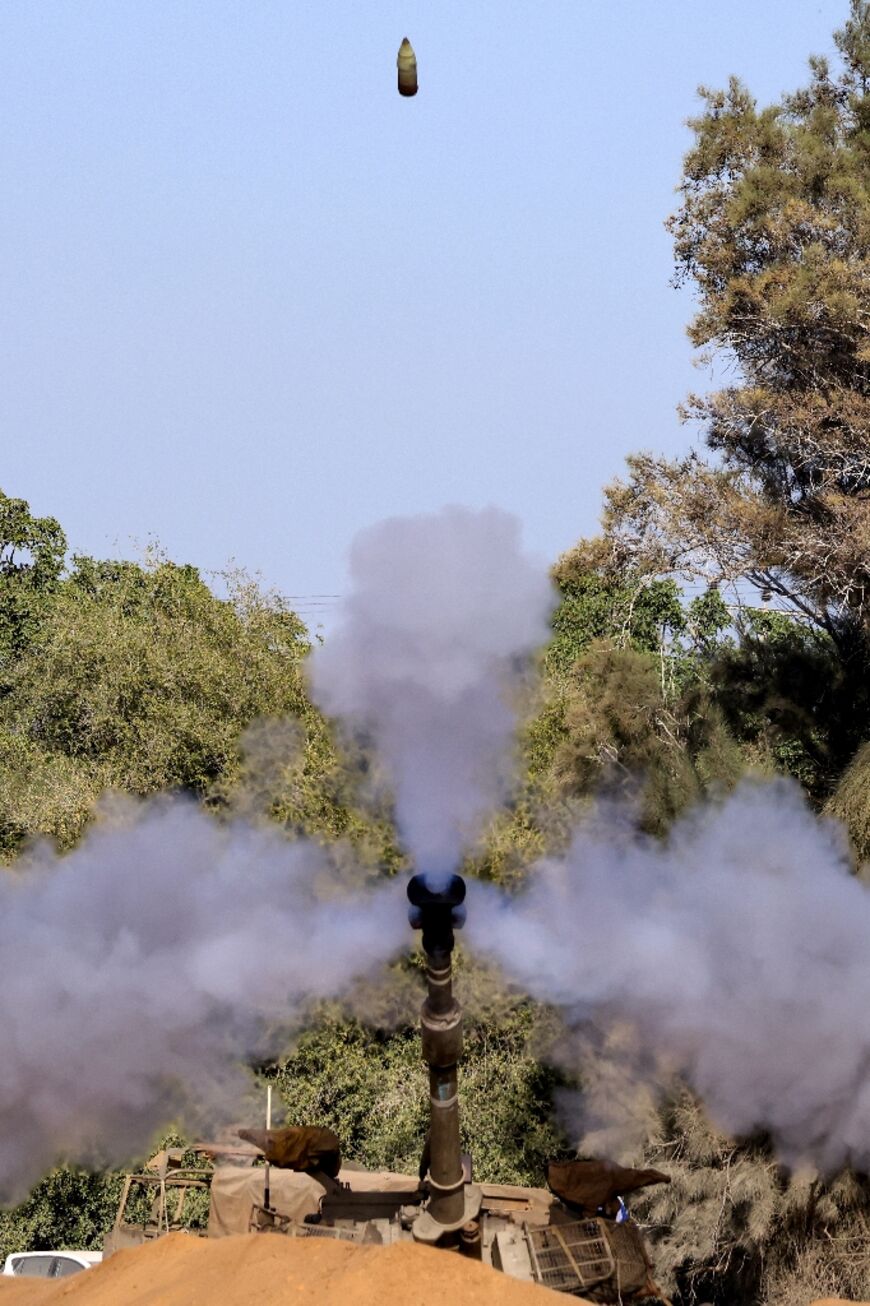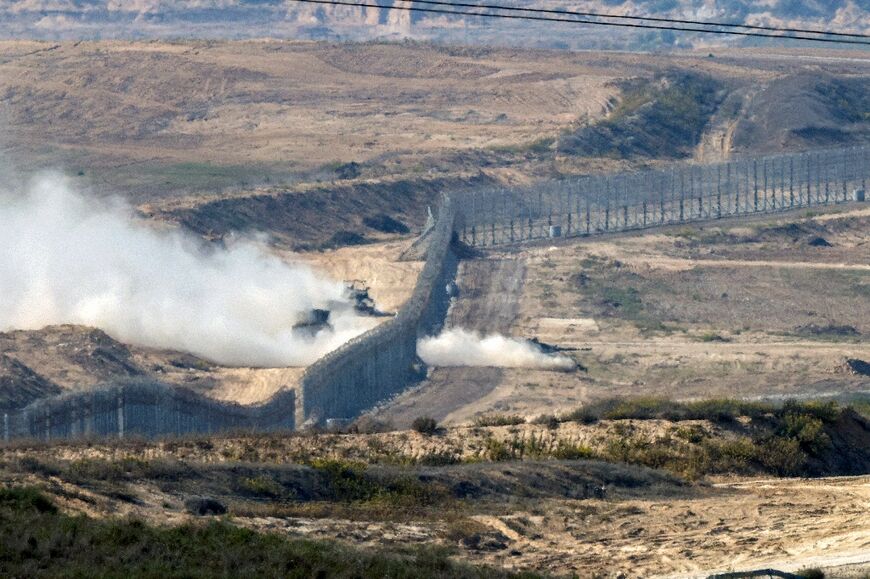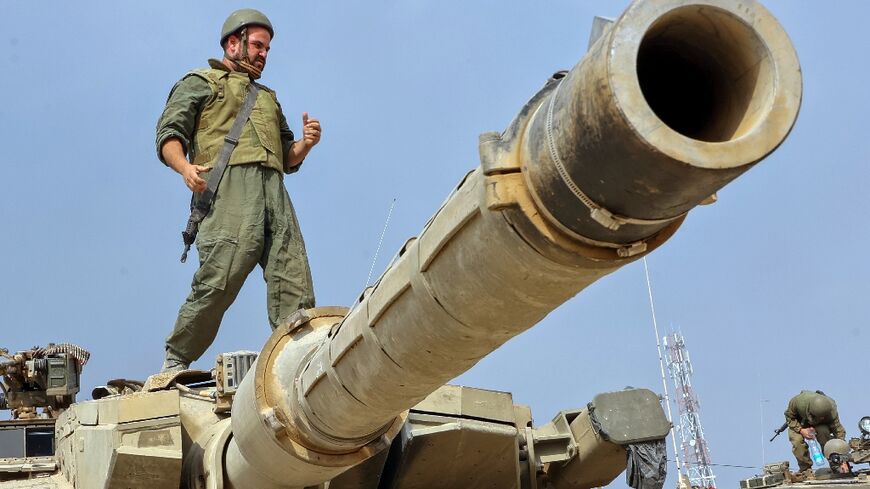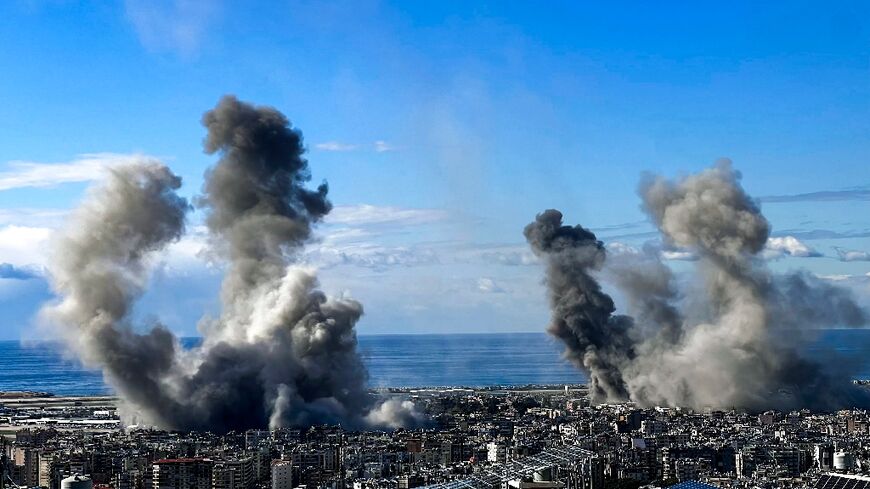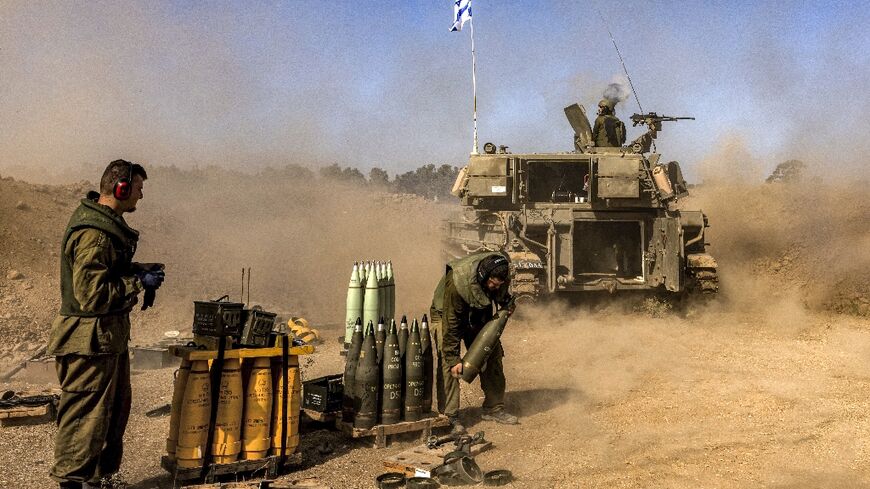Israeli artillerymen facing 'harder war' in Gaza
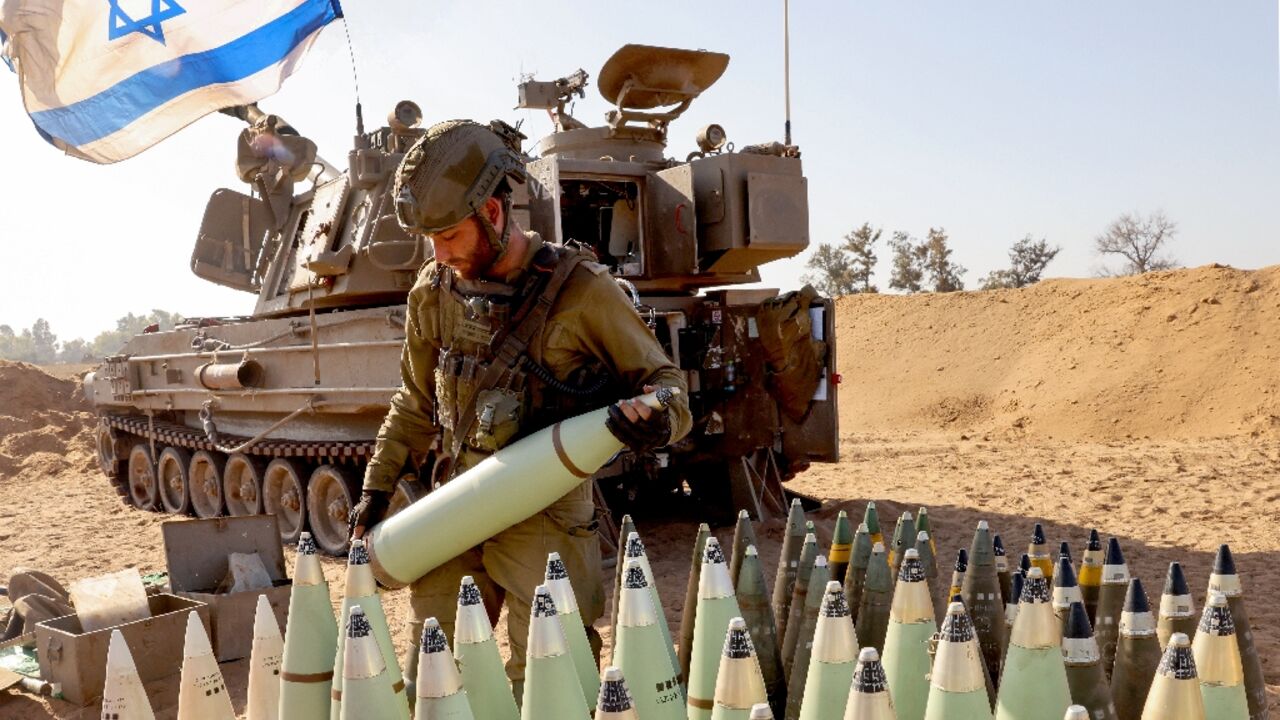
Veteran officer Tzvi Koretzki has had a role in many operations against Palestinian militants in the past 25 years, but believes Israel's fight against Hamas in Gaza will be "a harder war".
Milling around the 47-year-old reservist lieutenant-colonel are dozens of young conscripts -- many half his age, with no previous experience of combat.
On the frontier between Israel and Gaza the cannons of their artillery regiment now fire day and night, at unseen targets beyond a curtain of trees hemming the perimeter.
Koretzki was recalled to his regiment on October 7, the day Hamas surged out of the Gaza Strip and, according to Israeli officials, killed 1,400 people, mostly civilians.
He says it's the first time Israel has been serious about defeating Hamas. But "it's a harder war than we had in the past", he adds.
"It's the sixth or seventh time I'm deploying my guns here firing on Gaza," he says, squinting under the brim of a khaki bucket hat.
"I hope it will be the last time."
- 'Clear' mission -
After a month of deployment, the young soldiers around him don't complain, he says. They don't ask "How long is it going to take? When is it going to be over?"
"They're not the type of questions that we see this time. I think it makes sense after what we experienced," he adds.
"I think the mission is so clear this time that you don't need to explain too much."
Thinking too far ahead "can lower morale", says 21-year-old corporal Navad. "It's hard for everybody, it scares us, there is stress but we are strong," says the Franco-Israeli.
Under the men's boots the earth has been churned by heavy machinery. On the sunbeat patch of land the Israeli army has stationed howitzer cannons with a range of several kilometres (miles).
"We are on alert all the time, night and day," says Navad. "We get coordinates as soon as we need to fire, and we fire on terrorist targets no matter the time."
- Unseen targets -
"You don't see the target, so either you have a forward observer that is telling you what are the coordinates of the target, or you are acquiring the coordinates yourself with the (drone) or with a radar," says Koretzki.
The Israeli army says it is using artillery, far from the front line, to support the advance of infantry and armoured units encircling northern Gaza.
In the densely populated Palestinian territory more than 10,000 people, mostly civilians, have been killed by Israeli bombardments in the past month, according to the Hamas-run Gaza's health ministry.
"We would never fire if we knew we would kill civilians, and we warn them," says Navad.
After one month of war Israeli Prime Minister Benjamin Netanyahu has continued to reject the possibility of a ceasefire in Gaza, making the release of 240 hostages held by Hamas there a precondition for any pause on combat.
In civilian life Koretzki is the head of an electro-optics company. He lives on a kibbutz less than two kilometres (1.2 miles) from Gaza which was targeted on October 7.
"Our guys fought them, and I took the wounded to hospital because the ambulances couldn't get to the kibbutz," he says.
"On Sunday morning, they evacuated the whole kibbutz, and I went to the army. By the morning of Sunday the 8th, we already had units firing into Gaza."


